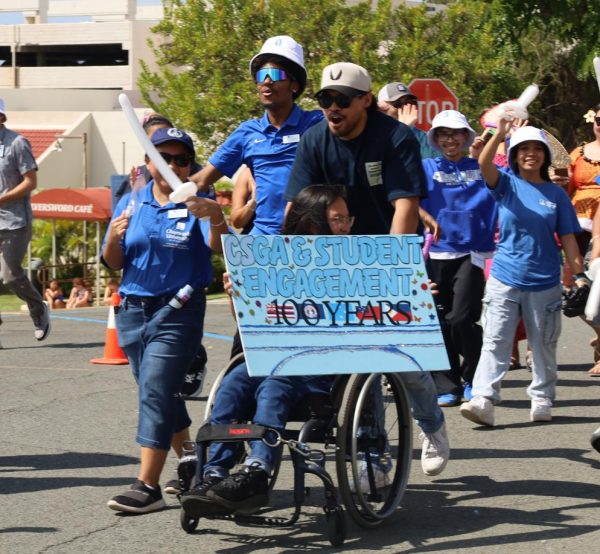Diagnosing and Combating Senioritis

Senioritis at work.
December 2, 2016
For the past couple of months I have been a victim of a disease. Although it is not particularly contagious or deadly, I have been diagnosed with a condition known as senioritis. This particular disorder affects many college students, and the worst cases of this illness are often found in college seniors. Common symptoms of senioritis include apathy towards attending classes and finishing school work, laziness, and a negative attitude towards anything related to school.
I have come to terms with my condition, and I have realized that if I want to succeed at school and in life that I must do everything in my power to fight it. Although apathy and laziness are very easy to succumb to, it is imperative to learn the possible dangers of giving into senioritis and what we can do in order to be cured from this condition.
One of the main dangers of giving into senioritis is the possibility of not being able to graduate. Even though partying, sleeping in, and cutting classes may seem appealing now, you will probably regret it in the long run if they cost you your degree. No one wants to fail, retake classes, or be a “super senior” when it could have been completely avoided. I have skipped a few classes back in my day, but I realized the more you skip, the easier it becomes (trust me). Not only do most professors check attendance and factor it in as part of your grade, but there is a high possibility that you may miss a test or quiz, an important lecture, or the explanation of an important assignment.
Another danger of giving in to senioritis is settling for less. A common phrase I have often heard is “C’s get degrees.” Although this phrase is true, it truly hinders our potential. Senioritis often dampens one’s resolve and can be a killer of motivation. In my own college experience, I have taken classes where I didn’t care what grade I got as long as I passed. Although I’ve always been a fairly good student who always tried to get A’s, I have felt senioritis take away what motivation I once had and have had it replaced with indifference and a lack of interest. I often find myself trying to cut corners, putting in the least amount of effort, and having a “Whatever, I’m not going to need this in five years attitude.”
Now that a couple of the main dangers of senioritis have been addressed, it is necessary to discuss some of the ways to combat this condition. Even though the only known cures for senioritis are a diploma and a graduation ceremony, students can slow down the effects of senioritis.
One tactic that has helped me in fighting senioritis is setting small goals for myself. Whether it’s trying to stay awake during a class or trying to take notes, it’s a lot easier than telling yourself that you need to get all A’s and pass all of your classes with honors. It’s less overwhelming to take small steps, and with time you’ll learn to take bigger ones. However, in combating senioritis, a positive mindset is key and whether your goals are big or small it is vital to make them and try to stick to them.
Another concept that has helped me in combating my condition is the concept of delaying gratification. I learned about this concept from one of my favorite authors named Scott Peck. In his work, “The Road Less Traveled,” he explains this concept as resisting temptation now in order to receive a better reward in the long run. I find this very true, as putting in a hard week of work makes for a more satisfying weekend, rather than partying and cutting classes all week and just having a mediocre weekend having to worry about all the work you missed in your classes. Delaying gratification also teaches you values such as patience, perseverance, and a good work ethic, and will greatly benefit you in college and in your future endeavors after you get your diploma.
Back in high school I ran cross-country for a couple of years. My coach always encouraged us to put in our maximum effort and to start sprinting as fast as we could as soon as the finish line was in sight. As we near the finish line of our college careers, we need to push ourselves into overdrive and finish without regrets knowing that we did our best work.



